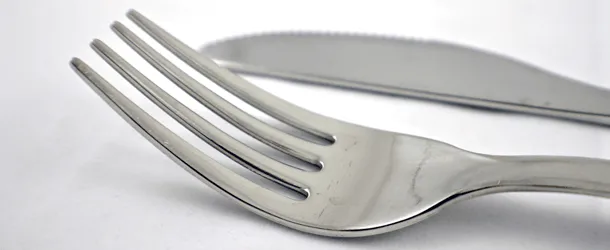
- Share on Facebook1
- Share on Pinterest
- Share on Twitter
Eating dinner can be a fun social activity filled with good food and drinks. However, what you eat for dinner can make a big difference in your health and your waistline. Becoming conscious about your evening eating habits can make you think twice before wolfing down your dinner tonight.
1. Eating Out
If you are in a hurry and need something quick to eat, it can be tempting to go to the nearest drive-thru at a fast food place and grab a burger. However, most of the food from these outlets is full of processed foods, have high sodium and high fat levels.
According to Live Strong, fast food is not the only culprit when it comes to racking up fat levels in food. In addition to the fat contained in burgers and fries, Chinese food, Mexican food and pizza are also fat culprits. In 1996, these foods contributed over 10 percent of fat calories, compared to 1.9 percent in 1965.
If you decide to eat out, choose a salad or grilled protein instead of a burger or fries. Choose salad dressings that are primarily oil and vinegar instead of creamy dressings or simply use lemon juice to top your salad. Ask for steamed vegetables instead of fries and chose seafood, chicken or lean meats instead of fried entrees.
2. Overeating
Many people grew up in households where cleaning your plate was the only acceptable dinner behavior. With larger and larger dinner portions at restaurants and in prepared dinners, it is no wonder that Americans have ballooned proportionately into a nation where obesity is a major public health concern.
Eating large meals in the evening can have dramatic effects on more than just your waistline. According to HealthGuidance.org, overeating can cause a multitude of health problems. One of the most common problems is acid reflux or heartburn. This is the result of stomach acids building up in the stomach and being pushed back up the esophagus, particularly if you have eaten a large meal and then laid down within a short period of time. Chronic heartburn can lead to more serious health conditions, including esophageal lesions and cancer. Other health problems associated with overeating include developing organ function issues, dental problems and emotional upheavals.
Rather than eating a huge meal in the evening, eat smaller meals throughout the day or your largest meal in the middle of the day. Also try drinking several large glasses of water before you start eating. This will fill your stomach and make it more uncomfortable to eat a large amount of food. You will also feel satisfied much more quickly and lose your desire to eat a large quantity of food.
3. What to Drink With Meals
For many people, having a soda, a glass of wine or a beer during a meal is a common occurrence. However, it is not the healthiest choice to make if you are looking for ways to eat healthy and have good digestion. The Mayo Clinic suggests that drinking water during a meal actually assists with the digestive process and pushes foods through your stomach much more quickly. Other suggestions for liquids that will help your digestion include low calorie drinks, such as sparkling water or sugar-free ginger ale.
There is no getting around the need to eat. Food is necessary for survival. However, when you eat and how much you eat can make a big difference in your ability to maintain a healthy weight and a comfortable, healthy digestion. Instead of eating foods that are high in fat and sodium, choose whole foods that are healthier. You do not need to eat to the point of being uncomfortable and overstuff yourself, particularly when you eat your evening meal. Instead eat a smaller meal with water for healthy digestion and overall health.
– The Alternative Daily
- Share on Facebook1
- Share on Pinterest
- Share on Twitter

